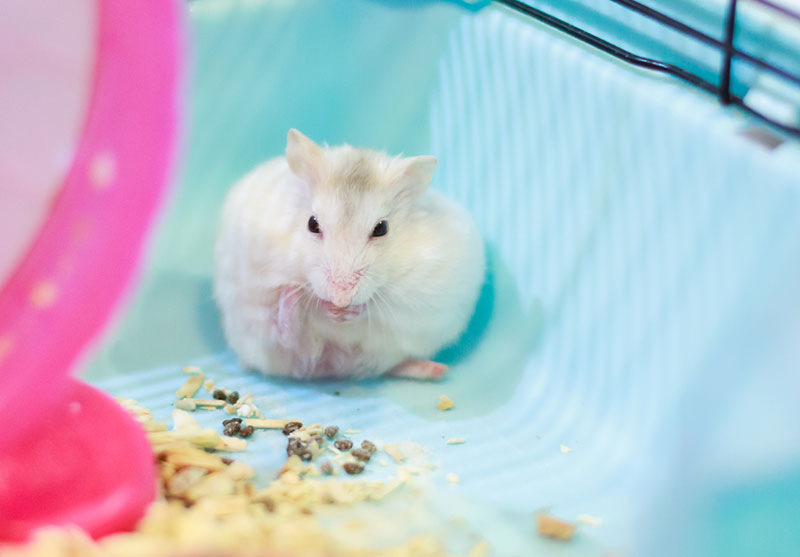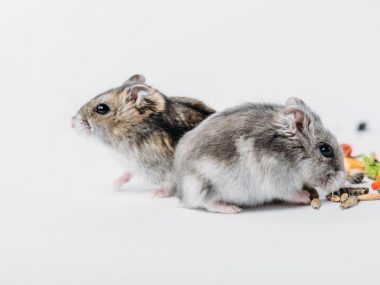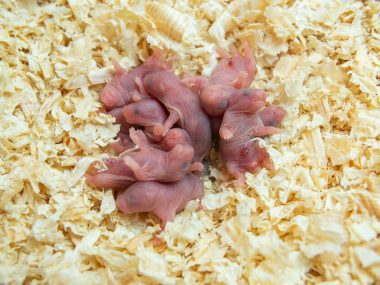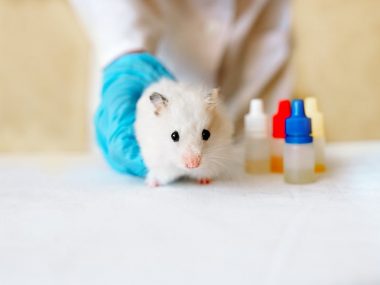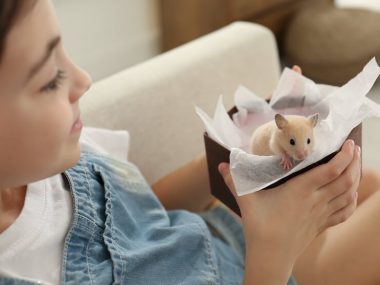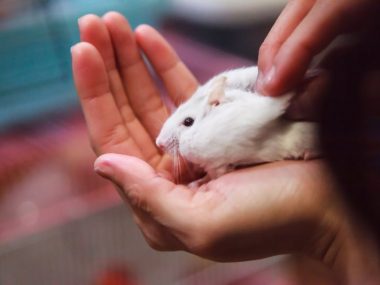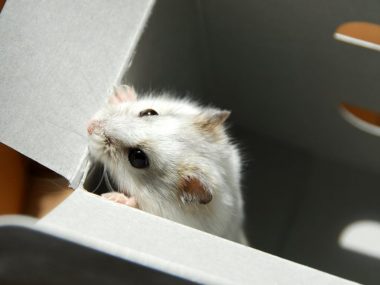When your hamster is itching more than usual, it can be a cause for concern. Hamsters are easily stressed and prone to anxiety, often resulting in the development of many illnesses. Keeping a close eye on your hamster, even when it’s just scratching a little more than usual, is wise.
Your hamster is itching due to stress, parasites, an allergic reaction, mange, or dry skin. Learning to tell the difference between normal scratching and a serious issue can mean the difference between life and death for your hamster!
Read on to learn more about your hamster’s behavior and the signs of serious issues.
Table of Contents
Is It Normal for Hamsters To Scratch?
It is normal for hamsters to scratch. Most of the time, it is a normal part of a hamster’s daily grooming routine. Hamsters often scratch and lick themselves to remove dirt. Sometimes they scratch at their surroundings to move their bedding into their nest or a more comfortable position.
However, you may notice your hamster is itching to an alarming degree. Here’s how to tell if your hamster itching might be a sign of a serious problem.
1. Scratching Due to Dry Skin
Sometimes your hamster has dry skin, which isn’t a serious issue at all. One way to tell is to check the back of the hamster’s ears. If the hamster’s ears are flaky, the constant itching may be due to dry skin. There will also be dandruff (skin flakes) on the hamster’s coat if the issue is dry skin.
You can treat your hamster’s dry skin by examining their diet, as dandruff is usually the result of a poor diet. Make sure your hamster is getting the proper nutrients and plenty of water.
2. Itching Due to Parasites
If your hamster is itching a lot, it may be because their fur is infested with parasites, which is a serious issue since parasites can spread disease. Fleas and mites are the biggest culprits when it comes to hamsters. Unfortunately, they can be passed between multiple hamsters and even from a dog to your hamster and vice versa, which means you may have to clean and sterilize your house.
Do the following to be rid of parasites:
- Buy a Pyrethrin spray to rid your hamster of the parasites.
- Clean the hamster’s cage, toys, bowls, and nests and change the bedding.
- Clean your carpet with flea carpet powder with products from Amazon.com:
- PetArmor Home Carpet Powder targets fleas and ticks and even deodorizes your carpet, leaving it fresh-smelling and parasite free!
- Adams Plus Flea and Tick Carpet Spray kills multiple pests, not just fleas, including bed bugs, silverfish, roaches, ants, and flea larvae.
- Enforcer 20-Ounce Flea Killer leaves behind a fresh linen scent after obliterating fleas from your carpet, as well as ants, silverfish, lice, ticks, and roaches.
- Once the carpet has been taken care of, clean the bedding of any dogs and cats in the house.
- Finally, give your other pets a flea bath and change their collars.
3. Itching Due to Allergies
First, it’s important to determine if your hamster is suffering an allergic reaction or showing signs of a more serious illness. Allergies in hamsters have many symptoms aside from constant itching. Other symptoms include:
- Sneezing
- Wheezing
- Swollen feet
- Discharge from nose and eyes
- Hair loss
Of course, these symptoms could be the beginning signs of a more serious ailment. There’s no certain way to tell without taking your hamster to a veterinarian.
Hamsters sometimes have an allergic reaction to two different things: their bedding or their food. Unfortunately, to test if your hamster is itching due to an allergy, you will have to use a rather lengthy process of elimination to determine the culprit.
Hypoallergenic Bedding
Starting with bedding, dispose of your hamster’s current bedding and try another brand. Here are some hamster bedding brands from Amazon.com that are less likely to cause an allergic reaction in your hamster:
- Kaytee Clean & Cozy Small Pet Bedding is 99% dust-free, decreasing the likelihood that it will cause an allergic reaction in your hamster.
- Living World Aspen Wood Shavings is scent-free bedding that is hypoallergenic, meaning it won’t irritate your hamster’s skin.
- Niteangel Premium Coco Chips encourages hamsters to dig and explore and keeps them busy, and it is “low dust,” meaning it’s hypoallergenic.
Food Allergies
To determine if your hamster is itching due to an allergic reaction to food, you will have to stop feeding it one item at a time to determine which is causing the allergy. To help you along, here are the most common culprits when it comes to food allergies in hamsters:
- Peanuts
- Sunflower seeds
- Corn
- Oats
- Foods that contain food coloring. Read all food labels to avoid any food dyes that contain “E”
- Wheat
4. Itching Due to Mange
Mange is a contagious skin infection caused by mites. Symptoms aside from incessant itching include hair loss and scabbing. This condition is severe and if your hamster is showing signs of mange, take it to a veterinarian immediately!
Until you can get your hamster to a vet, isolate them from other hamsters (though certain hamsters should always live alone) and pets in the household. As for fleas and parasites, change the bedding and clean the cage.
How Do I Know if My Hamster Has Mites?
You will know if your hamster has mites by checking their skin periodically. Keeping a close eye on your hamster and its overall health is a good way to catch mites early. You should talk to a vet immediately if you suspect that your hamster has mites.
Here are a few signs and symptoms (aside from incessant itching) to watch out for:
- Swollen or blistered skin
- Red rash marks
- Small bumps and scabs
Why Does My Hamster Rub Against Things?
Your hamster rubs against things because they are spreading their scent. Scents are very important to hamsters. Familiar scents help them feel comfortable in new surroundings, and helping a hamster get used to your scent is a part of bonding with it.
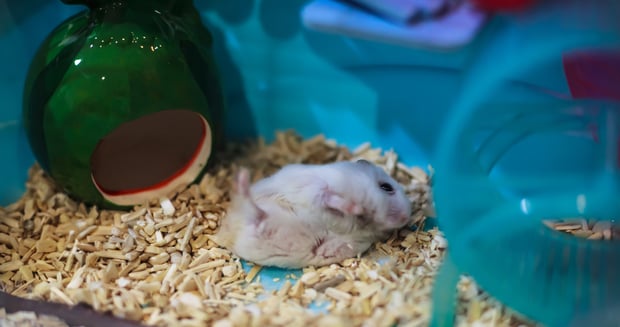
Male hamsters, in particular, have larger scent glands than females. They may rub their scent on an area when irritated. If you suspect that your hamster is doing this too much, check for mites or other parasites.
Is My Hamster Allergic to His Bedding?
If your hamster is allergic to his bedding then you will need to change it. The only way to know is to observe the hamster’s symptoms to see if it has an allergy and then try a new bedding to test whether or not the same symptoms arise.
Signs of allergies in hamsters include:
- Excessive scratching or bathing
- Sneezing
- Watery eyes
- Hair loss
- Dry skin
- Red feet
- Swollen feet
- Wheezing
- Dandruff/ white flakes
Conclusion
In conclusion, while it’s normal for hamsters to itch, it’s not normal for them to itch incessantly, resulting in hair loss and scabs! Closely monitoring your hamster’s bedding and diet will help you identify and treat allergies, prevent parasites, and keep your hamster itching to a normal degree!
